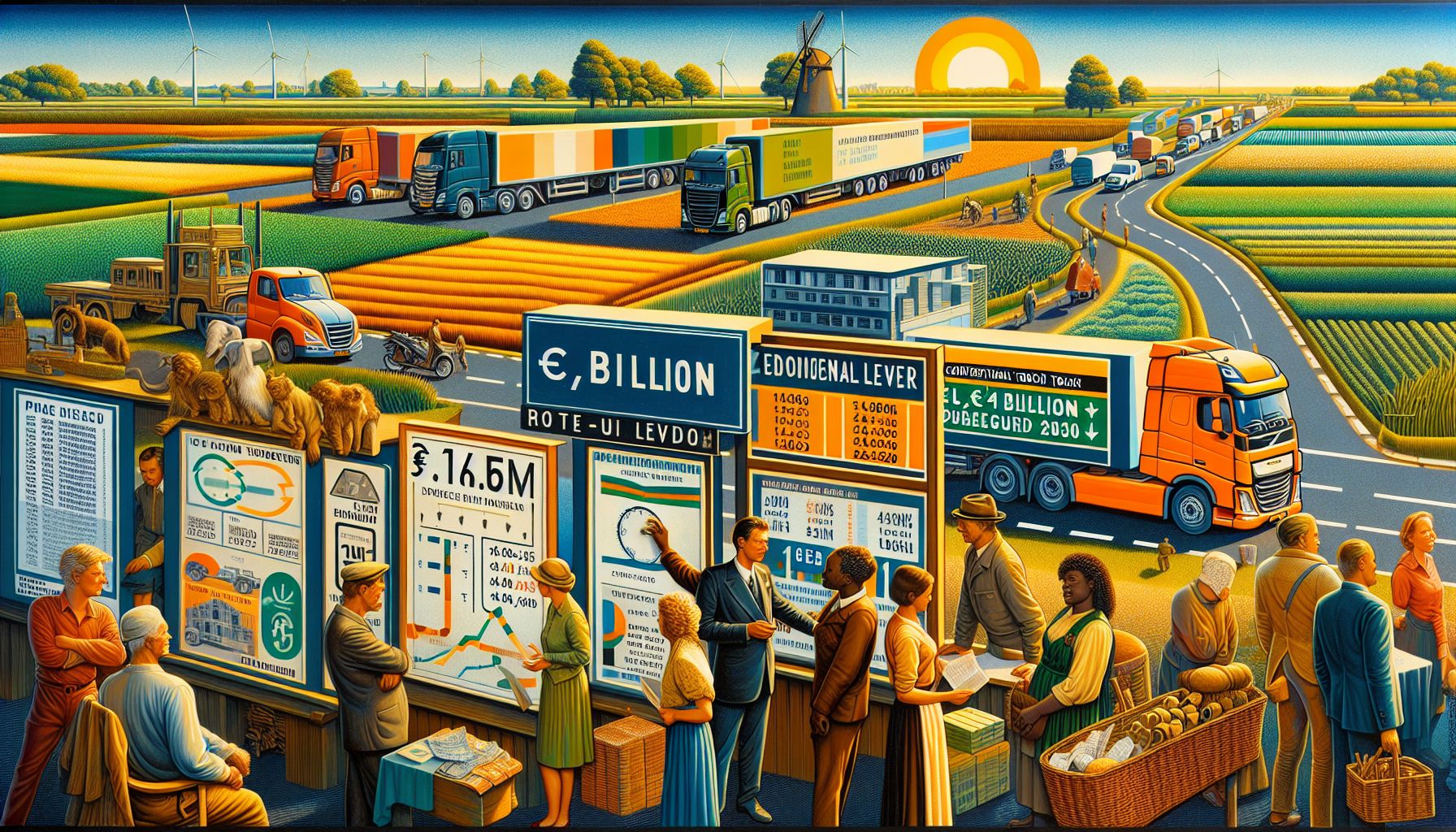Dutch Truck Levy to Fund €1.6 Billion Green Transport Initiative

The Hague, Friday, 4 October 2024.
The Netherlands introduces a truck levy from 2026, generating €1.6 billion by 2030 for sustainable transport. This innovative approach aims to reduce environmental impact and promote zero-emission vehicles in the logistics sector.
A Strategic Move Towards Sustainability
The Dutch government’s introduction of a truck levy marks a pivotal shift towards greener logistics. By imposing this levy, the Netherlands aims to gather substantial funds over four years, which will be strategically reinvested into the transportation sector. This initiative not only seeks to reduce the carbon footprint of heavy vehicles but also to stimulate innovation within the industry. As Minister Madlener of Infrastructure and Water Management remarked, the levy represents a collaborative step towards future-proofing the sector by investing in both innovation and sustainability.
Focus on Zero-Emissions Vehicles
A significant portion of the generated revenue, approximately €980 million, will be directed towards the ‘Aanschafsubsidieregeling Zero-Emissie Trucks’ (AanZET) program. This scheme is designed to encourage the purchase of zero-emission trucks, addressing the overwhelming demand for sustainable transport solutions. The latest allocation of €22 million for zero-emission vehicle subsidies was exhausted within just two days of its announcement, highlighting the sector’s eagerness for green alternatives. Similar patterns of high demand have been observed in previous funding rounds, emphasizing the industry’s readiness to transition to cleaner technologies.
Investing in Infrastructure and Innovation
Beyond direct vehicle subsidies, the remaining funds will support infrastructure development, such as the installation of charging stations for electric and hydrogen-powered trucks. Investments will also be made in researching innovative solutions like on-the-go charging technologies and efficiency improvements in logistics operations. These efforts are intended to create a comprehensive ecosystem that supports the sustainable operation of zero-emission vehicles across the Netherlands’ extensive road network.
Global Leaders in Green Innovation
Parallel to the Netherlands’ efforts, global companies like Maxion Wheels are making significant advancements in sustainable transport technologies. Headquartered in Bonn, Germany, Maxion Wheels has pioneered the production of ‘Green Wheels’ using 100% recycled alloy wheels and renewable energy sources. Their commitment to reducing vehicle carbon footprints aligns with the Dutch government’s goals, showcasing a shared vision of sustainability across borders. Maxion Wheels’ innovations, such as lighter wheel designs for electric vehicles and significant reductions in greenhouse gas emissions, exemplify the transformative impact of combining sustainability with advanced engineering.
Conclusion: A Unified Green Future
The Dutch truck levy and subsequent investments represent a significant stride towards a sustainable future in transportation. By fostering innovation and supporting infrastructure development, the Netherlands is setting a precedent for other nations to follow. As global companies and governments alike embrace cleaner technologies, the path to reducing environmental impact becomes increasingly achievable. This initiative not only promises to reshape the logistics sector within the Netherlands but also serves as a model of sustainability for the world.

